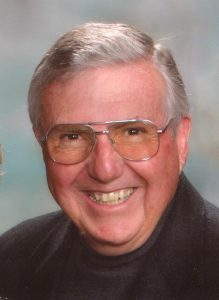
[Note: This interview is one of 100 conducted in Nevada County, California by Gary Quehl and his colleagues. One half of the interviews were conducted with “senior sage leaders” (Norman Westmore being one of these senior sage leaders). The other 50 interviews were conducted with “emerging sage leaders” in Nevada County. All of those who were interviewed are actively involved in the ongoing development of their community.]
You have been identified by friends and colleagues as one of our community’s 50 top senior sage leaders. A sage leader is a person who brings unusual experience, sound judgment, and wisdom in working to advance the civic well-being of our community. We thank you for participating in our interview process.
1. To begin, how many years have you lived in Nevada County? Where in the county do you reside?
My wife and I moved to Nevada City in August of 1997 and have resided here for the past thirteen years.
2. Are you working, semi-retired, or retired…And how old you will be on your next birthday?
I am retired, although I devote much time to nonprofit work in the community. I will be 73 on my next birthday.

3. If you would, please share a bit about your personal history: where you grew-up; where you went to school and college; what organizations you have worked for and the positions you have held.
I was born in Oakland, California, in December 1937. But within months, my mother moved us to Yuba City to live with my uncle and grandmother. I never knew my father—and my grandmother, mother, and all of my uncles and aunts would not give me any information about him. Throughout my childhood the subject of my father felt like a forbidden subject-the family shame closet.
I grew up on the family farm and learned to do all kinds of farm work from a very young age. My uncles had no children, so they wanted me to learn the rice farming business and take over the farm when they retired. I went to a local elementary school and then to Yuba City High School. I was not motivated to get good grades or to excel in class work, and I was not encouraged to go to college. By the time my dean of men took me on as a project and tried to get me serious about academics, I had blown through almost three years of high school without doing serious study. I was able to graduate from high school but did not have the grades to get into college. Nor did I have any money to go—again, no help from my family.
I was able to get into the local community college, Yuba College, and began pursuing a degree in engineering. I had to make-up all of the math classes I hadn’t taken in high school, plus take all engineering classes during my first two years of college. I brought-up my grades at Yuba College and then took an engineering entrance test. I was accepted into the School of Engineering, University of California, Berkley, and received my Bachelors in Mechanical Engineering from Cal in 1959.
Download Article















